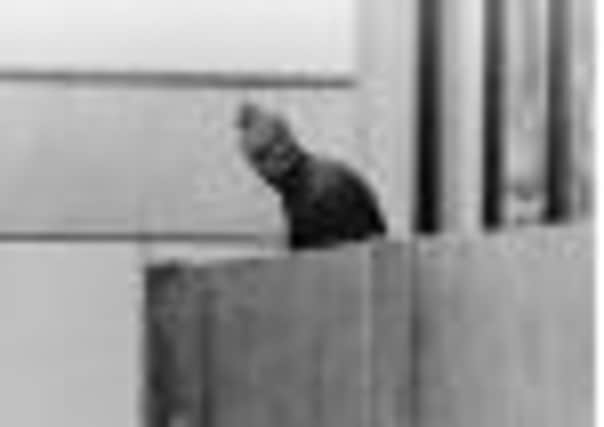Sporting Bygones: Recalling how news of the Munich massacre failed to reach competitors on darkest day in Olympic Games history


On September 5, in the second week of the Games, members of the Israeli Olympic team were taken hostage by the Palestinian group Black September.
The Palestinians demanded the release of prisoners held in Israeli and German prisons.
Advertisement
Hide AdAdvertisement
Hide AdThey broke into the athletes’ village in the early hours wearing tracksuits and carrying duffel bags containing guns.
They took nine hostages after a bloody incursion and for much of the day held them prisoner in their apartments.
Later that day, the Palestinians negotiated an exit to Cairo and as they arrived at the airport they were ambushed by West German police snipers.
In a badly-planned assault, the nine hostages were killed – taking the number of Israeli dead to 11 – along with a West German police officer, and five of the eight members of Black September.
Advertisement
Hide AdAdvertisement
Hide AdIt was an ugly, disturbing episode, that highlighted how a high-profile sporting event can be used as a deadly political weapon.
While it was going on around them, the rest of the Olympic athletes had little idea of the significance of the event.
With little or no way of the news being conveyed, people who had been battling for medals sat frightened in their room watching television pictures like the rest of the world.
One such athlete was British swimmer Colin Cunningham, who was only 17.
Advertisement
Hide AdAdvertisement
Hide AdNow a swimming coach in Rotherham, Cunningham had finished his Olympic competition, having come up against the great Mark Spitz in the 4x200m freestyle relay.
“He was already a length up on me by the time we reached 50 metres,” recalls Cunningham.
Spitz won a record seven gold medals in Munich, a feat that was not beaten until Michael Phelps four years ago in Beijing, and along with Olga Korbut’s graceful demonstration of gymnastics, would have been the abiding memory of the Games had it not been overshadowed by the Black September atrocity.
Cunningham had earlier in the year set the second fastest 200m backstroke time in the world but was wracked by nerves in the Games and failed to make the individual finals.
Advertisement
Hide AdAdvertisement
Hide AdHe was on a day off on September 5, when he left the village with his swimming team-mates to visit a castle in Bavaria.
“We were heading back towards the athletes’ village and it was eerily quiet,” recalls Cunningham of that fateful day.
“We didn’t get the news about what was happening until we were back in our apartments.
“We were actually very close to where it happened. I remember walking through the gates to the village and seeing all the police cars.
Advertisement
Hide AdAdvertisement
Hide Ad“We were told to stay in our rooms and keep the curtains closed.
“One of the guys opened a curtain to see what was happening and another snapped at him to shut it in case the police saw the light and reacted by firing at us. Some were very uptight.”
The nerves were understandable. But what was perhaps difficult to fathom was the lack of knowledge about what was going on.
Even at the memorial service to honour the dead the following day – an event attended by 80,000 spectators and 3,000 athletes – the terrorist attack was paid little attention to by IOC chairman Avery Brundage, who centred his speech on the strength of the Olympic movement.
It was harder for the athletes to take.
Advertisement
Hide AdAdvertisement
Hide AdSpitz, who was an American Jew, was flown out of Munich during the crisis amid fears that he would be targeted.
Cunningham stayed in Munich to support his fellow British competitors but admits to there being a dark mood cast over the athletes village.
“From living in a village that was buzzing, everyone was panicked,” he recalls. “After it had all finished and the Games had restarted, there was a dullness about the place.
“I signed the book of condolences and spent much of the rest of the Games watching the athletics.
Advertisement
Hide AdAdvertisement
Hide Ad“Ironically, I’ve probably learnt more about the Israel situation and what happened back then over the last few years from the films and documentaries that have been released.
“Remember, we didn’t have news bulletins to watch.
“We had no idea the extent of what was happening.
“I’ve spoken to a few other athletes who were there at the time since then and they say exactly the same thing.
“Back then, we didn’t realise the significance of what was happening.”